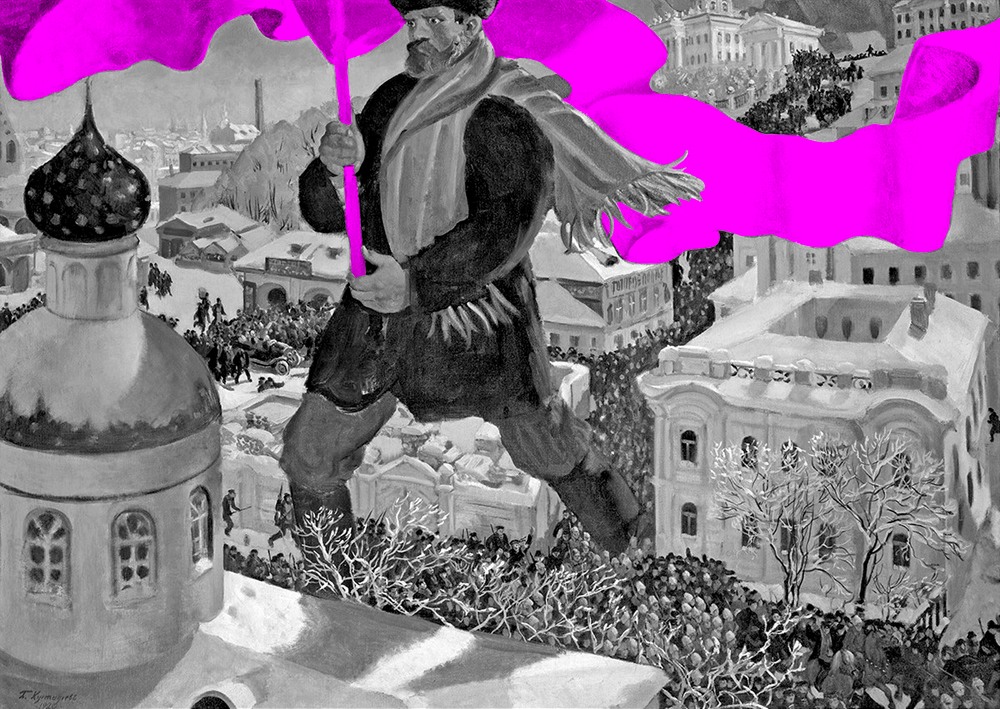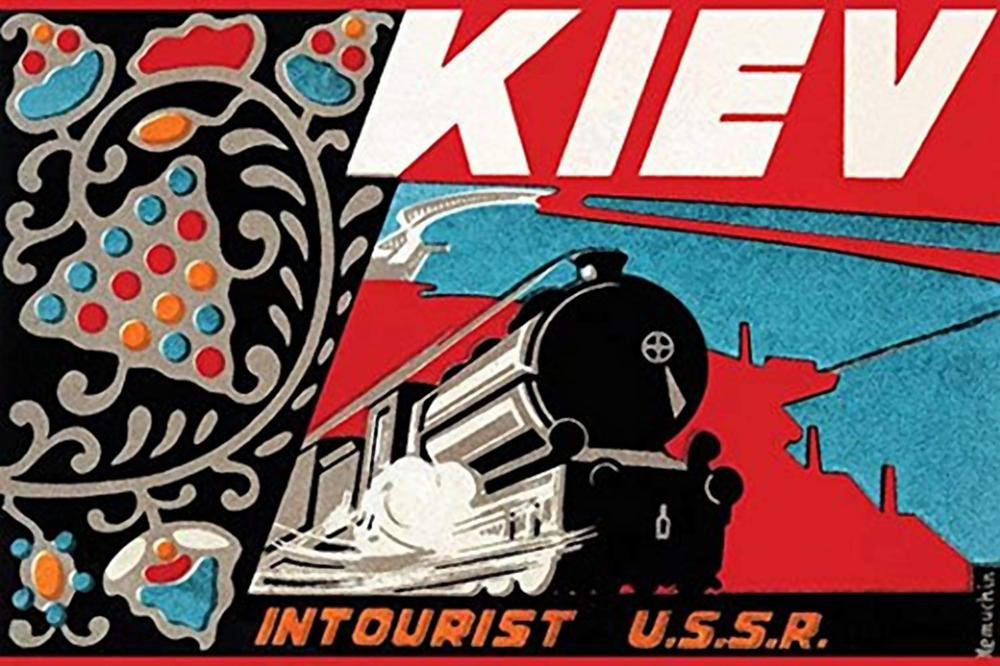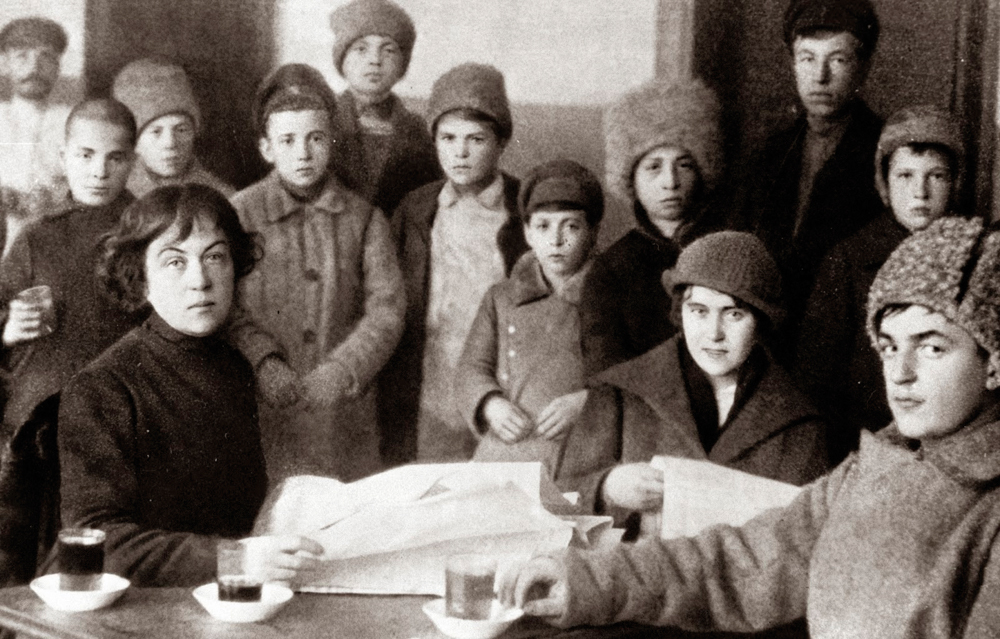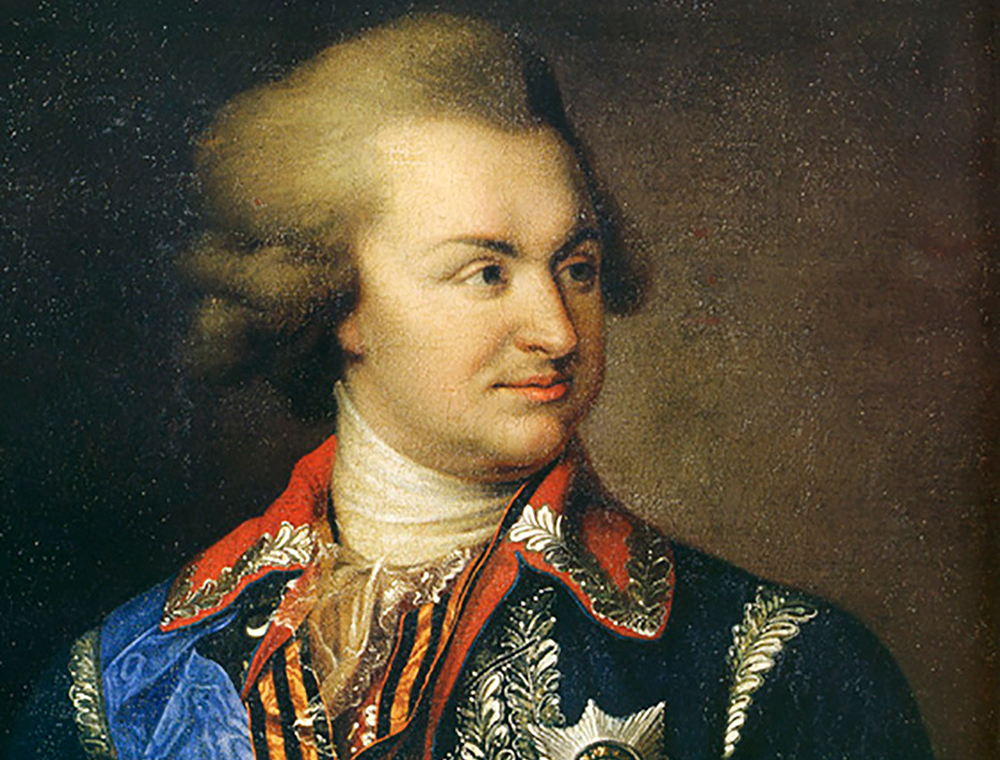Revolution, before revolution
- Without Soviet influence, the 20th century could not be understood, nor could the political conflicts and many other social situations currently taking place throughout the world. We have translated for LARRUN the conference given by historian Josep Fontana (Barcelona, 1931) in October 2016 at the Autonomous University of Barcelona, in which we explain why it is in our interest to study the Russian Revolution: remembering the centenary of the revolution of 1917 serves us to reflect on many of the problems we have now. At the same time, it would be impossible to understand what has happened in Russia a hundred years ago without analysing the revolutionary environment experienced in that gigantic country in the previous decades, often more plural and decisive than is believed. This approach has been attempted on the following pages.

To those of the 21st century we have come up with a whole imaginary of the 1917 revolution, a myth of history and myths. In this imaginary, led by a group of intellectually revolutionary men, the Russian Social Democrats, minority but hard, Bolsheviks, take power in October by raiding the Winter Palace. This includes the dissolution of the Constitutional Assembly in January 1918 and the "dictatorship of the proletariat" programme. In a way, history and myth tell us that this was a strange revolution, as opposed to what Marxist determinism announced, in a society in which the working class had not matured, which left tragic consequences. Without the help of the workers of the other industrialised countries of Europe, the revolution was impossible, but it was possible to build the conditions for the future: with a bureaucratic model, the state increased capital accumulation, making a transition to a communist organisation without a state.
The West's story explains that real Soviet socialism was a failure. The Russian Government itself has serious reservations about commemorating the centenary, since by 7 November, the key date of the October revolution, in the Julian calendar, the Kremlin has organised several events, but has limited history to the academic sphere of a commission with the aim of "reconciliation". In Putin’s Russia, monuments to the Romanov Dynasty are gathered as a way of recovering the parades of Soviet nostalgia. An ambiguity calculated to strengthen internal unity.
Many of the last texts written by Marx were hidden or not sufficiently disseminated, among them his reflections on the ordinary peasants of Russia; those who believed that there could be another way to reach socialism were left in the shadow
This revolution was a "failed" essay, and yet, as Josep Fontana says in the speech we have translated in these pages, we had to "believe and treat".In fact, the components that made it possible and its origin were more spontaneous and massive than is believed. Thinker Slavoj Zizek has called what happened in his texts to rethink Lenin: the explosion of basic democracy, the proliferation of autonomous local committees created unexpectedly in a questioning of authority... "This is the unusual story of the October Revolution," says Zizek-, the other side of the myth that it was a small group of revolutionaries, noble and strong, that gave a coup d'état."
Peasant socialism in the heart of Russia
And if we had to go back to the source, maybe we could start studying the common Russian peasants, whom Karl Marx called "the old Russian communists." In his latest writings, particularly in the second edition of the Communist Manifesto of 1882, the German philosopher devoted great attention to the organization of rural areas of Eastern Europe: “In Russia half of the land remains the collective property of farmers. But the question is: Can we go through the primitive form of the common property of the land, to the higher level of communist property?” The Obshchines and the assemblies, called mir, were a kind of distribution and organization of the lands of the time of the Russian tsars, very old – not to be confused with the legitimate and popular assemblies that could have some similarity in Euskal
Herria. It seems that since the 18th century they were strengthened as a system of redistribution of taxes, and although they came to the 19th century rather disfigured, they were a way of sharing costs due to the abolition of the servitude of 1861. By the 1830s, these ordinary peasants began to arouse more and more interest, not only anthropological, but also social. They are the first roots of the populist trend that claimed “rural socialism”, arising from the debates between the Eslavists and those who drank from the progressive ideas that came from other European countries.
Populism had a notable influence on Russia’s intellectual and political life in the 19th century. The Narodniki movement (narod = village) emerged in the 1870s and its main idea was that from the ordinary peasants you could reach socialism without going through capitalism: the peasants were the true revolutionaries who would derail the monarchy. Groups such as “Earth and Freedom” were created. In the late 1870s they suffered savage repression and, although they were weakened, two decades later they were inherited by social revolutionaries. This party received great support during the 1917 revolution among the majority peasants of Russia – the First Soviet held in June of the same year. Congress had 285 of the 800 delegates – and proposed “socializing” the land. But the Bolsheviks despised him because of his relationship with the bourgeoisie: “It was really a political aberration, one of those parties in which everyone votes – Leon Trotski said – which does not oblige anything (...) The party picked everything up, it was a great zero”.
As defenders of the utopia of traditional agriculture – who also knew that the world was over – in recent decades it has gained strength among leftist ecologists what Jean Martínez Alier has described as “neo-narodnism”, with the aim of ending “120 years of divorce” between Marxism and ecological awareness. Historian Carlos Taibo writes about the return of Narodniki in his work on the Soviet Union: “Some people think that the resurgence of the old 19th-century narodniki movement is not far away. Of course, it was very reasonable to talk about the consequences that industrialization and growth will have both on the environment and on society, aware of the pernicious effects of consumerism and overcrowding, skeptical about the will of states and the bureaucracy to transform itself, and totally in favour of extreme decentralization.”
Many of the last texts written by Marx were hidden or not sufficiently disseminated, among them his reflections on the ordinary peasants of Russia; those who believed that there could be another way to reach socialism remained in the shadow. With this crutch, perhaps they would now be in another situation, for example, the indigenous struggles that have emerged later, perhaps now that, as Jakoba Errekondo says, “the vegetable garden is becoming a revolution”, that story deserves a place in ours.
.jpg)
The oppression of tsarism, a source of liberating ideas
It has been written that most populist movements, before and now, have emerged in very harsh political situations. At least in Russia, where the power of the tsar had deposited a kind of feudalism, the majority of the population had been condemned to false slavery. In December 1825, the nobility impregnated with liberalism and several military struck the absolutism after the death of Tsar Alexander I in dark circumstances. But it was a failure and the new Colonel Nicholas I constantly chased the votes of a constitution: Russia fell further into the pool of autocracy. This attitude closed the doors to the liberal revolution and industrialisation in Europe.
However, during the Crimean War (1853-1856), the Russian monarchy discovered that the country had also been completely militarily delayed. In order to respond in some way to the varapalo received by the French, English and Ottomans, it was necessary to “modernize” and to do so the tsar used the formula of developed European nations: the obligatory mili. Those of us in Euskal Herria who have forgotten the times of insubordination, can begin to tremble at the repetition of compulsory military service by a country as advanced as Sweden, will the same inertia not be repeated?
However, the establishment of military service meant the recognition of the equality of all citizens in 19th century Russia and, in theory, meant the end of slavery. With the move, however, in practice the poor became impoverished and the lords were greatly enriched: they forced the peasants to buy the lots of land and, as they had no money, they were indebted to the State through the Obshchina or look above. Sapiens Journals in February (No. 178) In the extensive published report he explains the dilemma of Russia:One cannot leave feudalism by decree in a single generation; Alexandro measures II.aren did not solve fundamental issues such as social inequality, repression and the absolute power of the tsar.
All the ingredients were there to awaken nihilistic and anarchist thoughts. The libertarian ideas of the exiles Mikhail Bakunin and Piotr Kroptokin acquired great strength at the end of the century, and in the revolution of 1917 the anarchist groups had a special prominence. But they had previously carried out a long revolutionary trajectory against tsarism, with direct terrorist actions. In the context of the revolution of 1905, which began with the Bloody Sunday that caused the death of hundreds of citizens and which continued with the uprising of the battleship Potemkin, there were, for example, spectacular attacks. Set in those dates, the famous work of Albert Camus Les justes: “The imperial court will know that we are willing to use terror until the land returns to the people,” says the revolutionary Annenkov. Everything is ready! The moment is coming.” The great man, who was already known in Russia, was killed in 1881 by a Alexander II bomb, launched by a militant of the armed revolutionary organization Narodnaia Volia.
The rise of the big industry and the leadership of the soviets
The population of Russia grew enormously in half a century compared to that of Western Europe: In 1861, it went from 73 million people to 170 million in 1913. And more importantly, residents in cities went from 6 percent to 18 percent in that interval. Large industrial raw materials workshops (metallurgy, mining...) were multiplied in the hands of foreign investors. Trotski claims that in 1914 the large factories of over a thousand workers in the United States accounted for 18% of the weight of Russian industry, while in Moscow and Petrograd they accounted for 41% of this type of factory. In the latter city thousands of workers were employed in plants such as Putilov, where machines were produced.
.jpg)
It is clear that Lenin and other Bolsheviks exaggerated the objective importance of Russian capitalism because the stimulus of proletarian consciousness was passing by, which shows that the word post-society, which today is on the side, can also serve for those times. But the truth is that the epicenter and the precursor of the October 1917 revolution took place in those factories through the Soviets.
At the beginning of the twentieth century it seemed that the whole of Europe was a great strike, from the miners of Bizkaia to the Barcelona Tragic Week, passing through the streets of Berlin. The words of Rosa Luxembourg, symbol of the German left, on the eve of the Great War of 1914 are not surprising: “They’re wrong if they think we’re going to fight our French brothers.” However, the European social democracy, assuming patriotism, accepted the war. Put on a boat Syriza's 2015 surrender, Trump's victory, Brexit -- and shake: the decision of the war among Marxist revolutionaries caused such shock.
For many, this context had a great influence on the “Leninist” fact, which could alter the evolution of history. After the revolution that led to the abdication of the tsar in February 1917, in April, on the return of exile, Lenin’s comments on how to put a foot in the Petrograd station were astonished at his comrades: Russia needed peace, the revolution had not ended.
Establishing military service meant recognizing that all citizens were equal in 19th-century Russia and, in theory, the end of slavery. But with the play, in practice, the poor became impoverished and the lords became very rich.
Lenin was able to understand the socio-political situation of the hour, but it is wrong that the whole revolutionary process from then on could be done only with its direction and on the initiative of a few Bolsheviks. The experience accumulated by the plain people in previous years and decades exploded: “It was a mass movement, a wave of enormous vitality, inspired by the utopian vision (...). They had no interest in the Western democratic and parliamentary principles proclaimed by the interim government. They gave up centralized authority. The local soviets of workers and peasants spread throughout Russia.” They are words of the consecrated historian Edward Hallett Carr, who best studied the Russian revolution.
All the power for the soviets! And peace, bread and land! The choruses were very successful in the Red Months from April to October 1917, both among the population and among the soldiers who deserted massively from the front. In July, for example, terrible marches were carried out, animated by anarchists and extremist revolutionaries. The Bolsheviks multiplied their members by ten during this time and organized a Soviet Congress ready to take power.
The journalist John Reed wrote the chronicle of the ten decisive days of October in which the Winter Palace was raided. On a Sunday he met with friends at a rally organized in a Petrograd ammunition factory. He saw with his eyes 10,000 people, “men and women dressed in black, assembled in wooden piles and bricks, hanging from the columns, pressed against each other around a board covered in a red sheet, passionate and attentive, screaming like thunder.” By then the world was already vibrating, the “XX. The short century,” which lasted between 1917 and 1991, was going to start.
Wu Ming literatur kolektiboaren Proletkult (2018) “objektu narratibo” berriak sozialismoa eta zientzia fikzioa lotzen ditu, Sobiet Batasuneko zientzia fikzio klasikoaren aitzindari izan zen Izar gorria (1908) nobela eta haren egile Aleksandr Bogdanov boltxebikearen... [+]
Sobietar Batasuna, 1920ko azaroaren 18a. Sobieten Gobernu Zentralak abortua legeztatzeko dekretua onartu zuen, historian lehenengoz. Handik aurrera, librea izateaz gain, doakoa ere izango zen. Urte batzuetan behintzat.
Moskuko Plaza Gorriaren izena nondik datorren pentsatzean bi aukera bururatu ohi zaizkigu...
Krimeako konkista zuzendu zuen militarrak, Ukrainako gobernadore Grigori Potemkinek (1739-1791) Katalina II.a erreginari aurkeztu zizkion herri idilikoak faltsuak omen ziren. Hortik dator “Potemkin herria” esamoldea.
Ukraniako Sobietar Errepublika izendatu zenean, emakume bat jarri zen hango Barne ministro, eta praktikan gobernuburu ere izan zen, ofizialki ez baitzen halako kargurik. 1917ko abenduaren 27a zen, eta kasik oharkabean emakumeen emantzipaziorako borrokan itu bat jarri zuen... [+]
Kontsigna hau gakoa izan zen 1917ko hilabete zurrunbilotsu horietan. Nicolas II.a tsarrak abdikatu ostean 1917ko martxoan (momentu horretan Errusian zegoen juliotar egutegian otsaila zen) sortutako behin-behineko gobernuan sozialdemokratak parte hartzen ari ziren, liberal eta... [+]
Errusiako iraultzak azaroan 100 urte beteko dituela baliatuz, Oñatin jardunaldiak prestatu dituzte azaroaren 5etik aurrera. “XX. mendeko gertakari garrantzitsuenetariko bati buruz gehiago ikastea eta gizarte ereduaz eztabadaidatzea” dira helburu nagusiak.



















